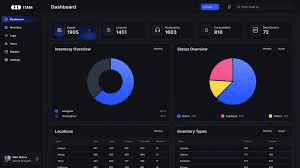Are you tired of fad diets and ineffective weight loss strategies? Are you searching for the breakthrough technologies that could finally help you shed those stubborn pounds? Look no further! In this blog post, we will uncover the most innovative and promising advancements in the world of weight loss. From intelligent fitness trackers to virtual reality workouts, join us as we explore what’s worth trying and discover the key to unlocking your ultimate body transformation. Get ready to embark on an exciting journey towards a healthier, slimmer you with these game-changing technologies!
Introduction: Discuss the importance of technology in our lives, including weight loss.
In today’s fast-paced world, technology has become an essential part of our daily lives. From the moment we wake up to the time we go to bed, we are surrounded by various forms of technology. It has significantly influenced the way we work, communicate, and even lead a healthy lifestyle.
One area where technology has made a tremendous impact is in weight loss. With the rise of obesity and other health issues related to weight gain, there has been an increasing demand for effective weight loss solutions. And with the advancement of technology, new breakthroughs have emerged that have revolutionized the weight loss industry.
Wearable Technology: Explore the use of fitness trackers, smart scales, and other wearable devices for weight loss.
Wearable technology has taken the world by storm, and its impact on weight loss is undeniable. From fitness trackers to smart scales, these wearable devices have become essential tools for individuals looking to shed some extra pounds. In this section, we will explore the different types of wearable technology that can aid in weight loss and how they work.
Fitness trackers are one of the most popular forms of wearable technology for weight loss. These devices are typically worn around the wrist like a watch and use sensors to track various aspects of physical activity. Most fitness trackers can measure steps taken, distance traveled, calories burned, and even heart rate. With this data, users can set goals and monitor their progress throughout the day.
One of the main benefits of using a fitness tracker for weight loss is that it encourages you to move more throughout the day. Seeing your step count or calorie burn in real-time can be a motivating factor to take an extra lap around the office or go for a quick walk during your lunch break. Additionally, many fitness trackers also come with accompanying apps that allow you to input your food intake and track your overall daily calorie deficit.
Another type of wearable device commonly used for weight loss is a smart scale. These scales use advanced technology such as bioelectrical impedance analysis (BIA) or air displacement plethysmography (ADP) to measure body fat percentage, muscle mass, water weight, and other metrics in addition to your overall weight. By providing a more comprehensive view of your body composition than traditional scales, smart scales can help individuals better understand their health and make informed decisions about their diet and exercise routine.
Smart scales often come with apps or online platforms where users can track their measurements over time and set personalized goals based on their desired outcome. This makes them valuable tools for anyone trying to lose weight as they provide clear feedback on progress towards specific targets rather than just showing changes in overall weight.
There are also wearable devices specifically designed to assist with weight loss, such as activity trackers that can be worn on clothing or clipped onto a waistband. These devices have built-in features like calorie tracking and automatic exercise recognition, making it easier for individuals to keep track of their physical activity throughout the day.
Mobile Apps: Highlight popular weight loss apps that offer tracking, meal planning, support, and more.
Mobile weight loss apps have become increasingly popular in recent years, offering convenient and accessible ways to track progress, plan meals, and receive support on a weight loss journey. With the plethora of options available in the app store, it can be overwhelming to choose which one is right for you. In this section, we highlight some of the most popular weight loss apps that offer various features such as tracking, meal planning, support, and more.
One of the top-rated apps for weight loss is MyFitnessPal. This app allows users to track their daily food intake by scanning barcodes or searching through a large database of foods and their nutritional information. It also offers exercise tracking and custom goal setting based on individual calorie needs. Additionally, MyFitnessPal has a supportive community feature where users can connect with others for motivation and accountability.
Another highly recommended app is Lose It!. Similar to MyFitnessPal, Lose It! offers food tracking and barcode scanning capabilities but also includes features like personalized meal planning with recipes tailored to personal dietary preferences or restrictions. Users can also access a variety of challenges for added motivation or join virtual groups for support from other members.
For those who prefer a more structured approach to weight loss, Noom might be the perfect fit. This app incorporates behavior change techniques into its program along with personalized coaching from certified health coaches to help users form sustainable habits that lead to long-term success. The comprehensive program also includes meal planning, daily tasks and lessons to promote self-reflection and progress tracking.
If you are someone who struggles with emotional eating or mindless snacking habits, try out Rise Up! The app focuses on mindful eating practices by providing prompts throughout the day to check in with yourself before consuming any food. Users can identify their hunger levels as well as emotions tied to eating behaviors.
Last but not least is WW (Weight Watchers). This app takes a holistic approach by combining nutrition education with support through weekly virtual group meetings and one-on-one coaching sessions. WW also offers a customizable meal planning feature, fitness tracking, and a large community for support and inspiration.
Virtual Reality: Discuss how virtual reality is being used to promote exercise and healthy eating habits.
Virtual reality (VR) has taken the world by storm in recent years with its ability to transport users to new and exciting digital environments. However, VR is not just limited to gaming and entertainment; it has also been increasingly utilized in promoting exercise and healthy eating habits.
One of the biggest obstacles people face when trying to achieve their weight loss goals is finding the motivation to exercise regularly. Traditional methods such as going to the gym or running on a treadmill can quickly become monotonous and discouraging. This is where virtual reality comes in, offering a more immersive and enjoyable way to stay physically active.
With VR fitness programs, users can engage in a wide variety of workouts without ever having to leave their home. These programs offer different forms of exercise, from high-intensity interval training (HIIT) sessions to yoga and even dance classes. What makes VR workouts so effective is that they combine physical activity with an engaging virtual environment, making the experience more fun and motivating.
Moreover, some VR fitness programs are specifically designed for those who struggle with starting or maintaining a healthy diet. These programs use interactive cooking simulations where users can learn how to prepare nutritious meals using fresh ingredients. The added benefit of being able to cook virtually means you can make mistakes without fear of ruining your meal, making it easier for beginners to develop their cooking skills.
Aside from promoting regular physical activity and healthy eating habits, VR has also been used as a tool for mindfulness practices such as meditation and stress reduction techniques. Research has shown that stress plays a significant role in unhealthy eating habits and weight gain. By immersing oneself in relaxing virtual environments, individuals can reduce stress levels, leading them towards better food choices.
Another way VR helps promote healthy eating habits is by allowing individuals to track their diet progress through virtual food diaries. These diaries enable users to keep track of their daily calorie intake effortlessly while providing helpful tips on keeping a balanced diet.
Artificial Intelligence: Explore the use of AI in weight loss programs and predictive analysis for meal planning.
Artificial intelligence (AI) has rapidly emerged as a game-changing technology in the field of weight loss. Its ability to process vast amounts of data and provide personalized solutions makes it an ideal tool for creating effective weight loss programs and predictive analysis for meal planning.
One of the biggest challenges in traditional weight loss programs is the lack of individualization. Often, these programs follow a one-size-fits-all approach, which may not work for everyone. However, AI allows for a more personalized approach by taking into consideration factors such as age, gender, medical history, fitness level, and dietary preferences.
AI-powered weight loss programs use algorithms to analyze this data and create customized plans that suit an individual’s unique needs. It can also track progress over time and make adjustments to the plan accordingly. This ensures that users are consistently working towards their goals and seeing results.
Another significant advantage of using AI in weight loss programs is its ability to learn from user behavior. This means that as individuals input their information and track their progress through the program’s app or software, the AI system gathers valuable insights on what works best for them. Over time, this leads to even more precise recommendations and helps users reach their goals faster.
Not only does AI help with creating effective weight loss plans, but it also plays a crucial role in meal planning. Predictive analysis using AI can suggest optimal meals based on an individual’s specific dietary needs and preferences while keeping track of nutrient intake.
This feature is particularly useful for individuals with busy schedules who often struggle with meal prep or making healthy food choices on-the-go. With AI-powered meal planning tools, they can access customized meal ideas quickly without having to spend hours researching recipes or analyzing nutritional information.
Furthermore, predictive analysis through AI technology can also anticipate potential roadblocks in one’s weight loss journey by identifying patterns in behavior or unhealthy habits. This allows the program to provide proactive solutions to overcome these obstacles before they hinder progress.
Conclusion
In today’s fast-paced world, weight loss can seem like an overwhelming task. However, with the help of breakthrough technologies and innovative techniques, it is possible to achieve your desired results. From wearable fitness trackers to personalized DNA testing for optimal nutrition, there are various options available to help you reach your weight loss goals. It is important to do your own research and consult with a professional before trying any new weight loss method. With determination and the right strategy, improving your health and achieving a healthier body is within reach.



































